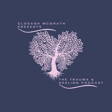
Deirdre Reilly - Reiki, Craniosacral Therapy, Hike Psych, Yoga and more
In this episode, we explore Deirdre O'Reilly's multifaceted approach to healing, which encompasses a wide range of modalities, including Reiki, craniosacral therapy, and innovative hike psych facilitation. Her dedication to her clients' well-being and passion for discovering new ways to promote healing make her a sought-after therapist and an inspiring figure in the holistic health and wellness community.
Enjoy
You can find Deirdre on her Instagram page at Wholebody.Wellness
Email: Deirdre@hikepsych.ie or wholebodywellness@gmail.com
Books
From My Hands and Heart: Achieving Health and Balance with Craniosacral Therapy - Kate MacKinnon
Your Inner Physician and You: Craniosacral Therapy and SomatoEmotional Release - John Upledger
Yoga School
ISFYT - International School of Functional Yoga Teachers
Don't forget to follow and if you liked the episode please do leave a review.
Take care.


